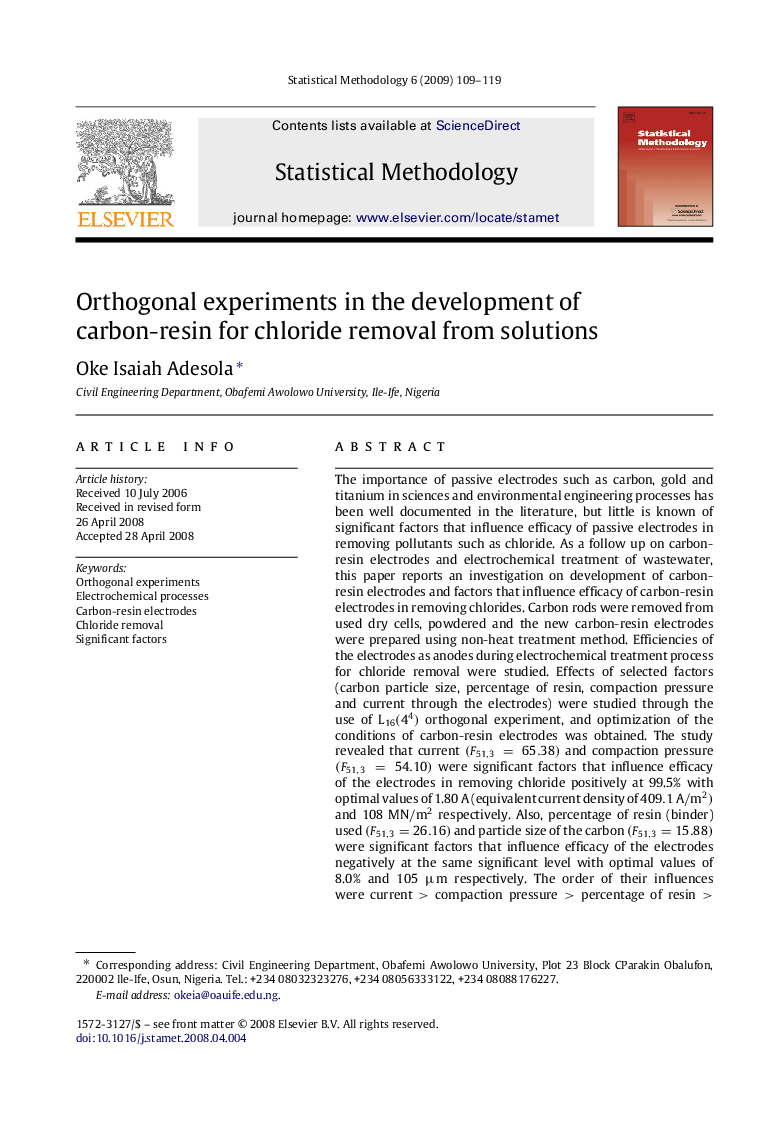| Article ID | Journal | Published Year | Pages | File Type |
|---|---|---|---|---|
| 1151047 | Statistical Methodology | 2009 | 11 Pages |
The importance of passive electrodes such as carbon, gold and titanium in sciences and environmental engineering processes has been well documented in the literature, but little is known of significant factors that influence efficacy of passive electrodes in removing pollutants such as chloride. As a follow up on carbon-resin electrodes and electrochemical treatment of wastewater, this paper reports an investigation on development of carbon-resin electrodes and factors that influence efficacy of carbon-resin electrodes in removing chlorides. Carbon rods were removed from used dry cells, powdered and the new carbon-resin electrodes were prepared using non-heat treatment method. Efficiencies of the electrodes as anodes during electrochemical treatment process for chloride removal were studied. Effects of selected factors (carbon particle size, percentage of resin, compaction pressure and current through the electrodes) were studied through the use of L16(44) orthogonal experiment, and optimization of the conditions of carbon-resin electrodes was obtained. The study revealed that current (F51,3=65.38)(F51,3=65.38) and compaction pressure (F51,3=54.10)(F51,3=54.10) were significant factors that influence efficacy of the electrodes in removing chloride positively at 99.5% with optimal values of 1.80 A (equivalent current density of 409.1 A/m2) and 108 MN/m2 respectively. Also, percentage of resin (binder) used (F51,3=26.16)(F51,3=26.16) and particle size of the carbon (F51,3=15.88)(F51,3=15.88) were significant factors that influence efficacy of the electrodes negatively at the same significant level with optimal values of 8.0% and 105 μm respectively. The order of their influences were current > compaction pressure > percentage of resin > particle size of the carbon. Further studies on these factors agreed with orthogonal experiments. It was then concluded that in the development of carbon-resin electrodes, particle size of the carbon, compaction and percentage of resin used must be given priority for a stable and effective electrode in removing chloride from wastewater.
